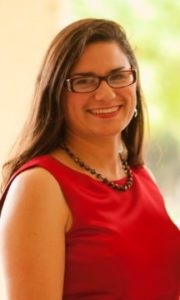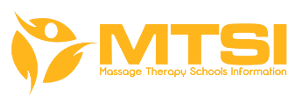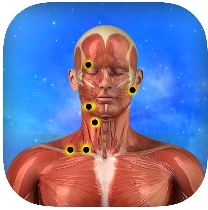
On a professional level, being a massage therapist offers the flexibility I’m looking for in a variety of domains: schedule, modality, and work environment.
Working multiple contract jobs at a time in Austin gave me an enjoyable, yet challenging, taste of being self-employed. Each client’s personality and different abilities presented unique goals for our sessions, which could be adapted to the appropriate context for their needs.
One of my love languages is physical touch, and I use it naturally to connect with others. I was blessed to grow up in an environment in which touch was used often and positively; my family members and the majority of my friends and I greet each other with a hug and sometimes a kiss. I learned a valuable lesson during my student teaching, however, when a student recoiled upon feeling my hand on his shoulder: touch has the potential to both heal and hurt.
When used appropriately, physical contact is a gift we have as humans to share within personal and professional contexts. I want to be a part of a field where we support the body in its own healing and further that process by educating clients about bodywork and other modes of self-care, often complementing the therapist’s own self-awareness and discovery.
The 3 most influential factors for choosing massage
One of the biggest influences in choosing massage therapy as a career is my family. I have four aunts who were or are currently massage therapists, and this has given me the unique opportunity for insight into their successes and hardships and helped me make an informed decision.
Second, my Master’s degree research explored whether a five-minute upper body chair massage would affect off-task classroom behaviors in two 10-year-olds with Down syndrome. One of the teacher’s aids was finishing her massage therapy degree at the time of my study, making the teacher even more receptive to my experiment, as she had learned the many benefits of massage from her colleague.
My participants displayed less off-task behaviors in class after their short massage, a sequence that could be easily replicated by parents and teachers. This was an exciting revelation for me, the teachers, and the students’ parents, and it confirmed the findings of the limited peer-reviewed literature on the subject at the time. (I’m pleased to report a database search in 2015 of “disability” and “massage” yields many more results than 2007, the year of my research, so my future niche is promising.)
Finally, in the same vein in which I entered the world of people with disabilities, so, too, am I planning to endeavor in massage for this population – I view it as a calling. Working with the typical person can be a challenge, but a person with a physical or cognitive difference may require additional accommodations, an out-of-the-box approach, or modified goals.
For the most part, however, I see massage therapy as another domain in which “individualization,” the hallmark of special education, is key. I plan to put my special education training and skills to work for a population that is often marginalized in even the most public settings, to be inclusive, and to reach a minority group suffering “touch starvation.”
My main concerns and questions about the massage profession
While I believe massage therapy would greatly benefit individuals with disabilities and see evidence of it in research studies, I wonder how professionals in the field will actually perceive it, thus affecting my referrals and outreach. Also, will massage be accepted as a valid form of therapy by disabled people themselves?
Because of their marginalization, accessibility issues, and limited number of therapists who are knowledgeable in appropriate accommodations, embracing and pursuing massage therapy as a self-care resource may progress slowly among those are who are differently abled.
Dependent upon its reception by this population, I’m curious if specializing in massage for this particularly-abled group will be financially lucrative for me as a contracted employee, or, if I will find it beneficial to extend my reach to individuals with mental illness, for example.
How long I plan to pursue massage
I would like to be a lifelong recipient, for sure! As far as I can tell at this point, I would like to practice massage therapy as long as my body will allow The beauty of the bodywork field is its variety and adaptability to meet the needs of both clients and therapists. If I tire of a certain modality, I can incorporate a new one until I make it my new, main mode of work.
If I find myself stuck in a rut with a certain clientele, I can expand my client base. If I want to work in a spa to take a break from the demands of working for myself, I can do that. If I have children, I can adjust my schedule to fit my growing family’s needs. If I want to teach more and massage less, I can find the balance I need.
What I plan to do after my massage career ends
I need to be realistic, however, in knowing that my massage career may need a break every once in a while and will eventually end one day. When that comes, due to physical or cognitive challenges, I would like to continue to instruct others, present at conferences, and/or facilitate workshops. Another dream I’ve recently developed is owning and/or managing a bed-and-breakfast or resort through which I employ adults with and without disabilities to provide services to the patrons, one service of which will be massage!
Originally a Texan, Jessica Dunn eventually found herself in Hot Springs, Arkansas and is currently studying at AR Therapeutic Massage Institute & Spa. She holds a Master’s degree in Special Education with an emphasis in Counseling. She plans to use her background in disability education and her new massage training to reach individuals with disabilities and their families. Her downtime activities include exploring the great outdoors, travel, and time with her large family.
I was born in Dallas, Texas and graduated from Midwestern State University in Wichita Falls, Texas, with degrees in Special Education. After earning my Master’s in 2008, I helped found and was Director of a student-driven Autism Support Program where college students on the autism spectrum lived and learned with neurotypical students who provided academic, residential, and life skills supports. I moved to Austin in 2011 where I continued to coach young adults with disabilities in social, job, and independent living skills. I also taught special education courses as an adjunct professor at St. Edward’s University for both general and special education majors. I moved to Hot Springs, Arkansas in 2015, and, after being laid off from a geriatric-psychiatric hospital unit where I worked as a recreational activity therapist, I found ARTMIS, AR Therapeautic Massage Institute & Spa. I am scheduled to graduate May 2017.








Leave a Reply